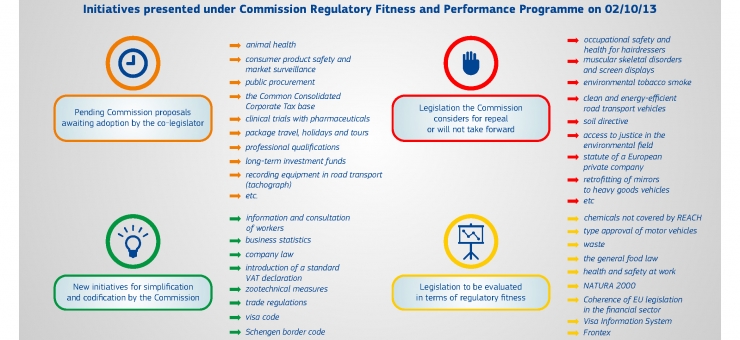NFU- Challenged: health and safety at the workplace

NFU: the Nordic countries have strong rules for safety and health at the workplace. It is a main achievement from over 100 years of trade-union work. Through the EU it has in many ways been extended, both in the Nordic region and in Europe. A new approach from the European Commission is now challenging these achievements.
The approach is called REFIT, and the idea from the Commission is to start a work to decrease the administrative burden for small and medium enterprises (SME). SMEs are companies with 250 employees or less, and they represent 99% of businesses in the EU.
Unfortunately, it seems that this burden is considered to be, among other things, rules for health and safety at work, information and consultation of employees and other important trade union values. Click on the picture below for a more extensive list.
We in the trade-union movement in Europe have an opinion on this ready. Health and safety at work and other core values for employees and trade unions cannot be seen as an administrative burden, but an absolute right. We are of course not against the aim of lowering the administrative burden, but this so called smart regulation seems to be nothing but deregulation of core employee rights.
Even though the aim to lower the administrative burden is only a proposal, a proposal that could be stopped after the EU elections, the EU has already started to take actions on the matter. The employers and employee representatives in the Hair & Beauty sector encouraged the EU, through an agreement in the European Social Dialogue, to make a Directive regulating which products hair dressers are allowed to use as well as other important health standards. Thereby, the severe health problems in the sector could have been addressed.
However, the Commission has refused to propose rules for this, with support from the Council, even though the social partners had already agreed on the issue. The EU has thereby undermined the social partners’ right to be co-deciders in setting EU legislation, which is guaranteed by the Treaty on the Functioning of the European Union (TFEU).
Equally worrying is that the consultation round preparing this REFIT approach mainly addressed SMEs, and not trade unions. It seems to be a conscious move to sidestep the trade-union movement. In the consultation, SMEs were asked to pick the 10 most burdensome rules from a list prepared by the Commission. The results can be found here, and it is obvious that rules guaranteeing employee rights are threatened. Areas that should not been in the list of burdens in the first place.
This is a cross-sectorial issue, meaning NFU is not working with it directly, as it is the task of the trade-union confederations at national and European level. But it is important to follow the agenda of the EU, and foremost the Commission. Approaches in the cross-sectorial area could soon spread to the financial sectors and challenge wins NFU has made. Such as information and consultation rights in the CRD IV, or whistle-blowing systems guaranteed in MiFID2.

